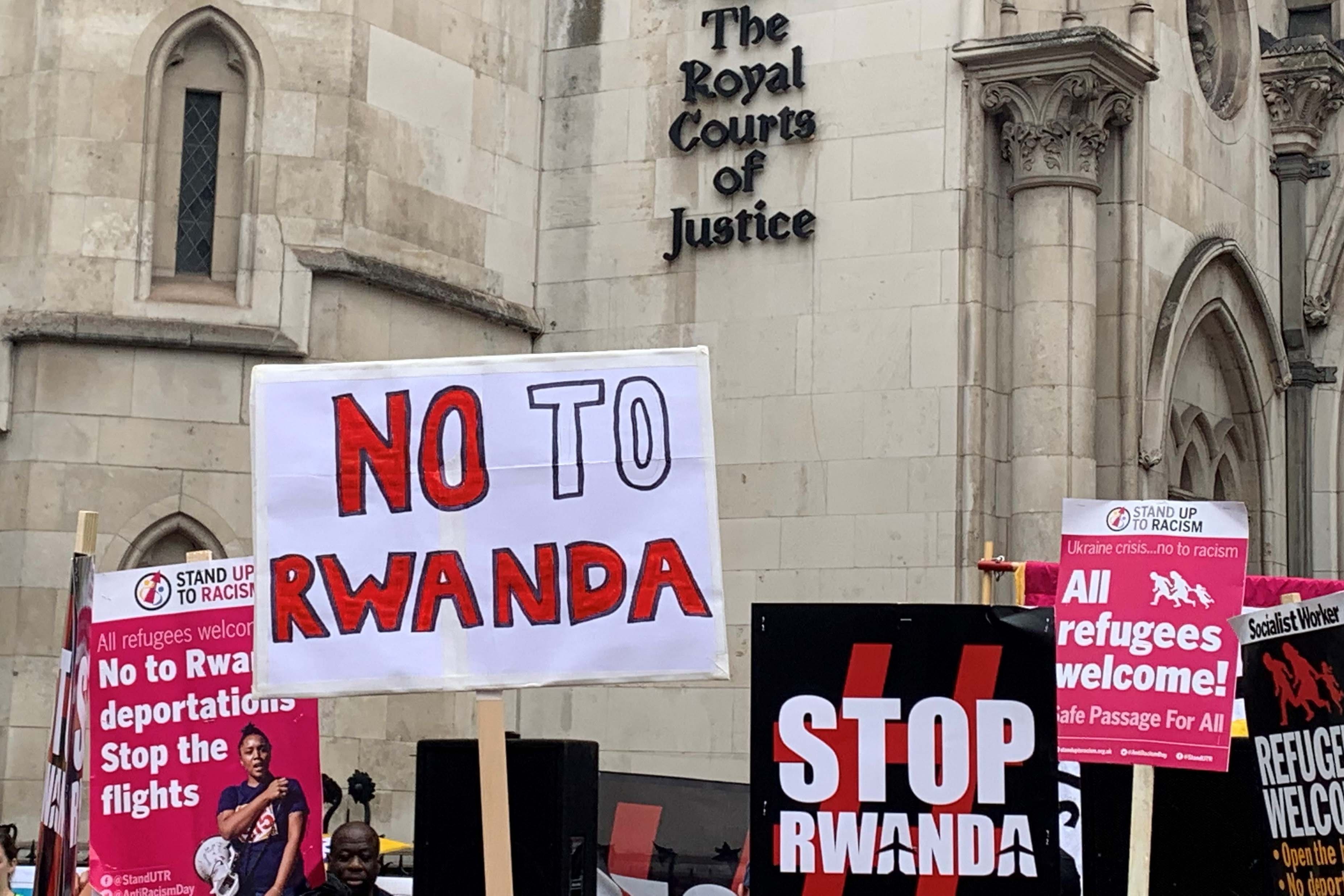Government lodges bid to take Rwanda legal battle to Supreme Court
Downing Street says plans ‘not deterred’ by court ruling and 20 defeats to plans in House of Lords

Your support helps us to tell the story
From reproductive rights to climate change to Big Tech, The Independent is on the ground when the story is developing. Whether it's investigating the financials of Elon Musk's pro-Trump PAC or producing our latest documentary, 'The A Word', which shines a light on the American women fighting for reproductive rights, we know how important it is to parse out the facts from the messaging.
At such a critical moment in US history, we need reporters on the ground. Your donation allows us to keep sending journalists to speak to both sides of the story.
The Independent is trusted by Americans across the entire political spectrum. And unlike many other quality news outlets, we choose not to lock Americans out of our reporting and analysis with paywalls. We believe quality journalism should be available to everyone, paid for by those who can afford it.
Your support makes all the difference.The government has launched its bid to fight the Court of Appeal’s ruling that the Rwanda deal is unlawful.
It has formally lodged an application to challenge last week’s judgment, which was a major blow to Rishi Sunak’s pledge to “stop the boats”.
Judges ruled that Rwanda was not a safe country to receive asylum seekers from the UK, saying the Home Office had ignored “the past and the present situation” in favour of promises by Rwanda.
The prime minister has said he believed the Rwandan government’s assurances that there would be no risk to asylum seekers, and “fundamentally disagreed” with the judgment.
Court of Appeal judges must formally grant permission for the case to go to the Supreme Court, which is not expected to hear the final stage of the legal battle until October at the earliest.
Delivering the judgment, the Lord Chief Justice said: “Unless and until the deficiencies in its asylum processes are corrected, removal of asylum seekers to Rwanda will be unlawful.”
He said the decision “implies no view whatever about the political merits or otherwise of the Rwanda policy”, which has already seen Kigali paid £140m and the government spend more than £1m on legal costs.
Attorney general Victoria Prentis said the government’s lawyers would “make robust arguments at the Supreme Court” in defence of the Rwanda policy, which is the only existing agreement to transfer asylum seekers who arrive on small boats.
No flights can take off unless the government wins the case, raising fresh doubt over a package of laws aiming to see all small boat migrants detained and deported.
The House of Lords has inflicted a total of 20 defeats on the Illegal Migration Bill in recent days, with peers accusing the government of being in “cloud cuckoo land” and calling for the bill to be withdrawn until an operational deportation agreement is in place.
A wave of amendments being sent back to MPs include protections for child asylum seekers and pregnant women, limits on detention powers and moves to create more safe and legal routes to Britain.
On Thursday, Downing Street said it would not be deterred from pushing ahead with the Illegal Migration Bill, and that it had expected to “face a challenge from all sides”.
Mr Sunak’s spokesman told journalists: “The government continues to believe that this is a problem that the public want us to urgently fix and we continue to use all the tools at our disposal to do so.”
The prime minister made “stopping the boats” one of his top five priorities ahead of a general election expected next year, but almost 11,500 people crossed the Channel in the first five months of this year.
The figure is around 10 per cent below the title at the same point of 2022, which was a record high, but small boat arrivals are likely to rise significantly in periods of good weather over the coming weeks.
Mr Sunak has since declined to say when he will fulfil his promise of stopping the boats, but denied it is on hold while the Rwanda policy is grounded by court challenges.
Facing questions from senior MPs on Tuesday, Mr Sunak also denied he has no plan B if the Supreme Court does not overturn the ruling blocking the forceful removal of asylum seekers to Kigali.
Sonya Sceats, chief executive of the Freedom from Torture charity, said: “Any right-thinking government would be persuaded by moral arguments alone to abandon this cruel ‘cash for humans’ scheme, instead of seeking to prolong a dispute over legal technicalities.
“In a country like Britain that is governed by the rule of law, the government has a right to pursue a further appeal, but in a case such as this, it is unconscionable to do so.”


